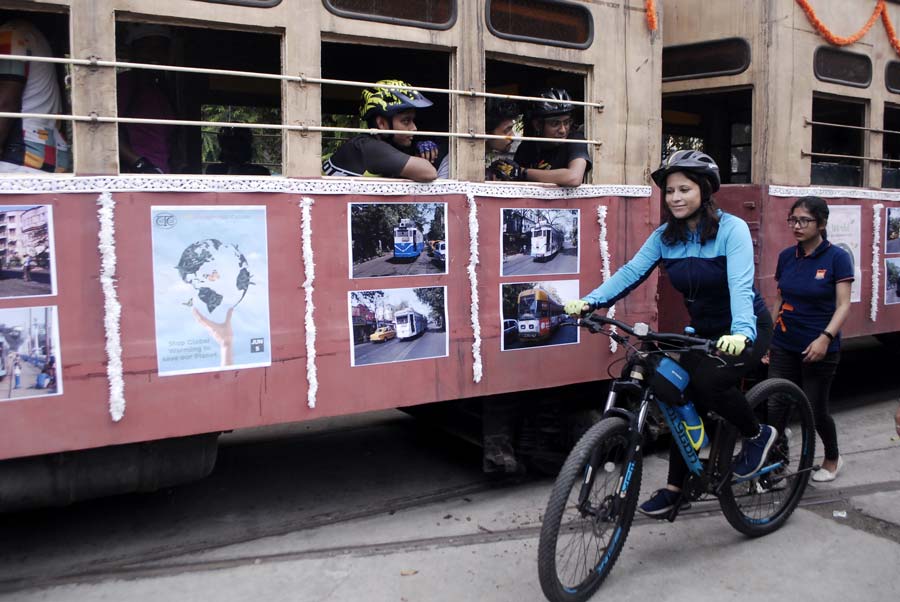A survey, conducted jointly by a university and an environmental NGO, has suggested developing a bicycle rental system in Kolkata for promoting the non-polluting mode of transportation.
The survey also advocated for the establishment of docking stations near major transit junctions and the promotion of a bicycle-friendly tourism circuit. It highlighted the lack of space for cycle parking, eve-teasing faced by women cyclists, safety issues at traffic intersections, lack of signages and dearth of bicycle repair shops.
The survey was conducted by students of the Kolkata branch of Amity University and NGO SwitchON Foundation, which promotes non-polluting modes of transportation.
A total of 307 cyclists were interviewed in July this year and the survey was focused on major stretches of Kolkata including AJC Bose Road-Minto Park, Mullick Bazaar-Nonapukur, C R Avenue-MG Road, Girish Park, Shobhabazar and Shyambazar.
The survey, the results of which were recently made available to PTI, found that a sizable section of people in the eastern metropolis and its surrounding areas cycle to work, and a majority of them are in the 19-50 years age group. It is also among the favoured modes of transportation of vendors.
Most of the cyclists hit the streets between 6 AM and 9 AM and begin their return journey between 6 PM and 9 PM. The survey found that cyclists prefer main thoroughfares instead of bylanes to save time but fines imposed on them for using out-of-bound roads, besides heavy traffic are some of the biggest obstacles faced by them.
The Kolkata Police, in its latest notification, has made around 71 roads, lanes and thoroughfares out of bounds for cyclists. Cycle Samaj, an organisation of cycle enthusiasts, suggested converting on-street parking spaces into bicycle lanes. It said cyclists from poor financial backgrounds are completely dependent on the mode of transport to eke out a living but are penalised due to the existing ban.
Transport Planning and Road Safety consultant Suvendu Seth said that for a city like Kolkata, where more than 70 per cent of the population depends on low-cost commuting options, cycling presents a great alternative.
